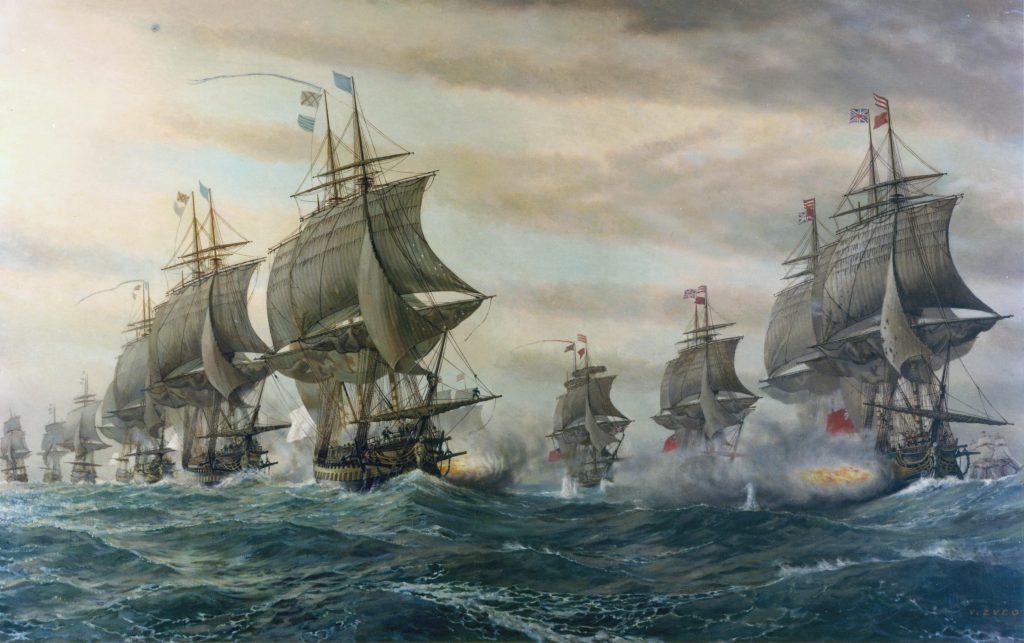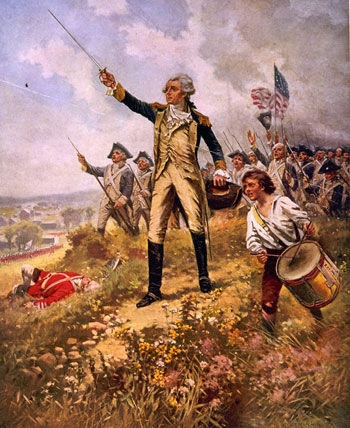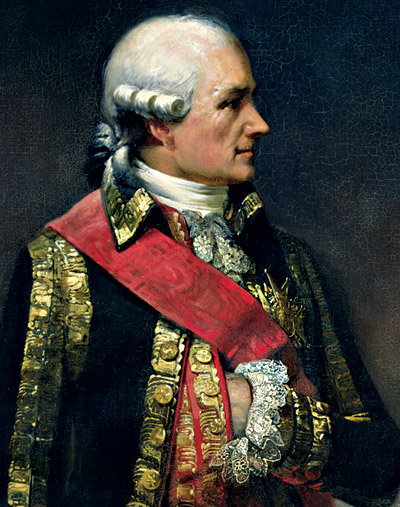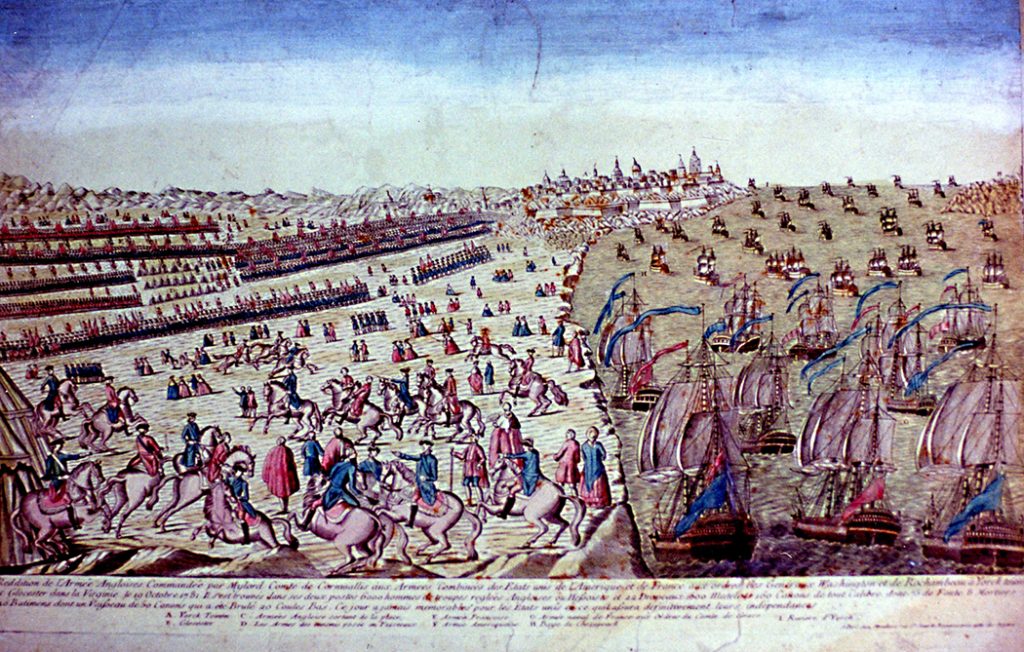Without the French, America may have never won the Revolutionary War. At that time, it was only a group of thirteen colonies with an army that didn’t have enough supplies and wasn’t trained well. Three years after the war started, France allied itself with the colonies in 1778, though had been secretly sending supplies for a few years before.evolutionary War
Britain and France had been long time rivals, but France was ready to get revenge after losing the Seven Years’ War. When Benjamin Franklin was sent to France as the American ambassador to France in 1776 and was welcomed by many enthusiastic citizens, all ready for America to win its independence and keep Britain from becoming too powerful. But, because the army still needed to gain more strength after the Seven Years’ War, they started off secretly aiding and supplying the continental Army from the spring of 1776 onwards. They had also sent over 5 million livres of aid by the following year.
Many French volunteers began joining the American army that same year, such as Pierre Charles L’Enfant and most famously, the young Marquis de Lafayette. Lafayette and George Washington quickly became friends, and lafayette would serve beside him until the end of the Siege of Yorktown. King Louis XVI had been unsure of whether or not to declare war on Britain, but chose to on July 23, 1777 when Charles Gravier, comte de Vergennes forced him to make a decision. On February 6, 1778, France formally joined the United States by signing the treaty of Alliance, and Britain declared war on France on March 17th. Now, Britain needed to strengthen their forces because France had allied with the United States.
Early on, the British naval force confronted the French fleet. The British made sure to avoid intercepting the French that April because they were worried France would launch an invasion on them from a fleet in Brest. When the fleet at Brest left France, the British Channel fleet was weakened, though Britain still had a larger fleet. On July 27, 1778, the Battle of Ushant took place 100 miles off of Ushant between Britain and French naval forces. The battle was ended with an undecided victory, and the casualties were especially higher for Britain. France then toyed with the idea of sending 40,00 men to the British Isles, but logistical issues got in the way and they decided against it.
Austria, an ally of France, also helped to protect them, but made sure to stay out of the war. Spain and the Dutch Republic began supporting America as well, and Spain formally entered the war in 1779 after convincing from Vergness. Britain declared war a year later on the Dutch Republic.
In 1778, France and America attempted to capture Newport, Rhode Island from Britain, but failed. Admiral d’Estaing had not landed his French troops when he was supposed to, a partial reason as to why the capture attempt failed. About 3,000 French soldiers joined 2,000 Americans in Savannah, Georgia, which was being held by Britain at the time, in the Siege of Savannah. The siege was unsuccessful because of a naval bombardment and the American casualties were high.
The comte de Rochambeau led 6,000 French soldiers to Newport in 1780 after it had been abandoned by the British. Once there, France was able to establish a new naval base. The forces in Newport were unable to do much though because the British were watching them closely from New York and Long Island. France decided that they would need to make more significant operations in America to help the United States in early 1781. The comte de Grasse commanded the West Indies Fleet that year and made sure to be notified of any operations so he could contribute as well. Meanwhile, General Washington met with Rochambeau so they could discuss Washington’s plans to attempt getting British soldiers out of New York City and Virginia. De Grasse was urged by Rochambeau to sail to Chesapeake Bay for their newly planned operations in Virginia. Rochambeau then out Washington in command of his army after moving them to White plains, New York from Wethersfield, Connecticut.
Around the same time that Charles Cornwallis was preparing his men to occupy Yorktown, de Grasse received the letters from Rochambeau and told him he would be able to reach Chesapeake in August. Because of a previous agreement with the Spanish, de Grasse would only be able to stay in the U.S. until the middle of October. When his dispatches arrived in the U.S., the Franco-American army decided to begin marching towards Virginia. De Grasse then arrived in Chesapeake right on time, and his men were sent to aid Lafayette and his army in keeping Cornwallis and the British troops out. On September 5, 1781, the Battle of Chesapeake was fought when a British fleet was ordered to confer with de Grasse and his men and ended with French victory. The Siege of Yorktown took place later that month from September 28-October 19, 1781 with Washington, Lafayette, Rochambeau, and de Grasse in command. It ended with a Franco-American victory, and was basically the end of the war. America most likely could not have won the battle if it were not for the French by their side.
After the Siege of Yorktown, Britain and the United States began negotiating a treaty to end the war, however, France was not informed of this. The alliance between France and the U.S. became weaker because the U.S. did not want France to know they were negotiating a treaty. France had given them many earlier suggestions on how to win the war, but Americans refused because they wanted to split up the two countries.
Once the war officially ended with the signing of the treaty of Paris in 1783, France gained territories located all over Americas, Africa, and India, some of which they had lost previously and regained. France was also in debt for spending much more money than normal during the war, and the unstable financial system in France partially led to the French Revolution in 1789.





